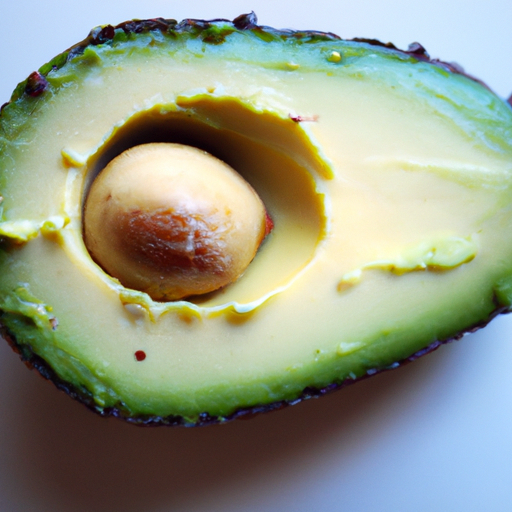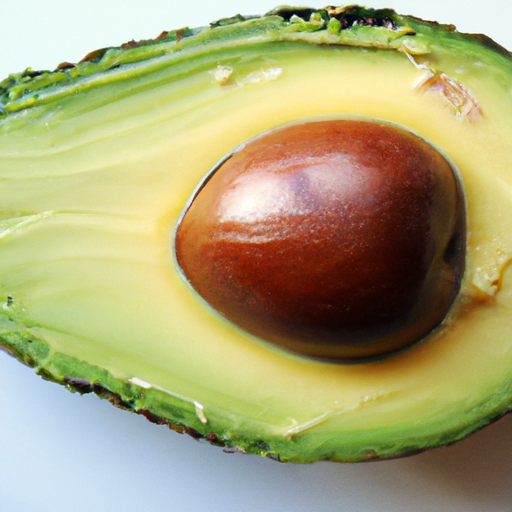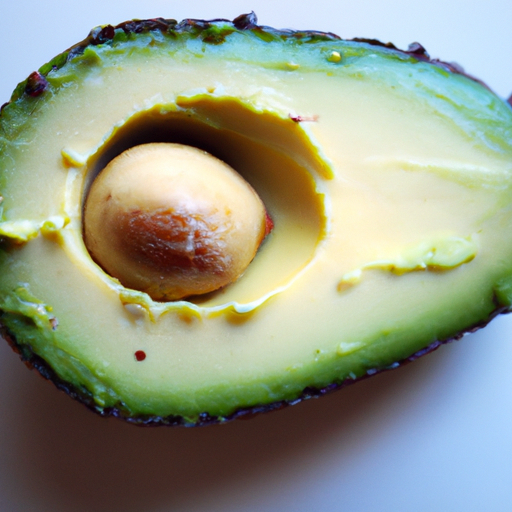Are you finding it challenging to incorporate enough fat into your keto diet? Well, fret not because we’re here to help you out! In this article, we’ll provide you with some useful tips and tricks to ensure that you’re getting enough fat in your keto meals. We understand that following a high-fat, low-carb diet can be a bit intimidating, but with the right approach and knowledge, you’ll be able to meet your daily fat requirements and stay in ketosis.
Curious to know more about how to get enough fat on a keto diet? Stay tuned! In the upcoming article, we’ll dive deeper into this topic and discuss the various sources of healthy fats that you can incorporate into your meals. From avocados and nuts to oils and fatty cuts of meat, we’ll cover it all. We’ll also provide you with some practical tips on how to boost your fat intake without compromising the overall balance of your diet. So, if you’re ready to embrace the ketogenic lifestyle and ensure that you’re fueling your body with the right amounts of fat, keep reading!
What is a Keto Diet?
A keto diet, short for ketogenic diet, is a low-carb, high-fat diet that has gained popularity in recent years. This diet involves significantly reducing your carbohydrate intake and replacing it with fat. By doing so, your body enters a metabolic state called ketosis, where it burns fat for fuel instead of carbohydrates. This shift in metabolism can lead to various health benefits, including weight loss, improved mental clarity, increased energy levels, and reduced inflammation.
Importance of Fat on a Keto Diet
On a keto diet, fat is a crucial component and makes up the majority of your daily calorie intake. It is essential to consume enough fat to meet your energy needs and keep your body in ketosis. Fat provides sustained energy, helps you feel satisfied after meals, supports hormone production, and aids in the absorption of fat-soluble vitamins.
Additionally, when you limit carbohydrates, your body needs an alternative source of energy. Fat serves as a fuel source in the absence of carbs, allowing your body to produce ketones, which are used as an energy source in the ketogenic state.

Are You a Ketosis Master? Take Our Quiz!
Sources of Healthy Fats on a Keto Diet
To get enough fat on a keto diet, it is important to choose healthy sources of fat. Here are some excellent options:
Avocado and Avocado Oil
Avocado is a nutrient-dense fruit that is rich in healthy fats. It contains monounsaturated fats, which have been linked to heart health and improved cholesterol levels. Adding avocado or avocado oil to your meals can increase your fat intake and provide a creamy texture to your dishes.
Coconut and Coconut Oil
Coconut and coconut oil are excellent sources of saturated fats, which are highly beneficial on a keto diet. Coconut oil contains medium-chain triglycerides (MCTs), which are easily converted into ketones and used by the body for energy. It adds a delicious flavor to both sweet and savory dishes, making it a versatile fat source.
Olive Oil
Olive oil is a staple in the Mediterranean diet and is known for its numerous health benefits. It is rich in monounsaturated fats, antioxidants, and anti-inflammatory properties. Use extra virgin olive oil for dressing salads or cooking at low temperatures to preserve its nutritional value.
Butter and Ghee
Butter and ghee are derived from milk and are excellent sources of saturated fats. They add flavor and richness to any dish and can be used for cooking or spread on keto-friendly bread or vegetables.
Incorporating Fatty Proteins in Your Keto Diet
While fat plays a central role in a ketogenic diet, it’s equally important to consume adequate amounts of protein. When it comes to protein sources on a keto diet, opt for fatty options to increase your fat intake. Here are some examples:
Fatty Fish
Fatty fish such as salmon, mackerel, and sardines are not only rich in protein but also contain omega-3 fatty acids, which have been linked to heart health and reduced inflammation. These fish are also an excellent source of vitamin D and other essential nutrients.
Eggs and Bacon
Eggs and bacon are a classic breakfast combination and provide a good amount of fat on a keto diet. Eggs are rich in vitamins, minerals, and healthy fats, while bacon adds flavor and satiety to your meal. Make sure to choose high-quality bacon without added sugars.
Chicken Thighs with Skin
Chicken thighs with the skin on are a great option for increasing your fat intake. The skin contains a significant amount of fat and adds flavor and moisture to the meat. Roast or grill chicken thighs to enjoy a delicious and fatty protein source.

Adding High-Fat Dairy to Boost Fat Intake
Dairy products can be a good source of healthy fats on a keto diet, but it’s important to choose full-fat options. Here are some examples:
Full-fat Cheeses
Cheese is a delicious and versatile food that can be enjoyed on a keto diet. Opt for full-fat or high-fat cheeses like cheddar, mozzarella, or brie. Cheese can be eaten on its own, added to salads, or used in keto-friendly recipes.
Heavy Cream
Heavy cream is an excellent addition to coffee, tea, or keto-friendly desserts. It is high in fat and adds richness and flavor to your beverages and dishes. Be sure to choose heavy cream with no added sugars.
Greek Yogurt
Greek yogurt is a good source of protein and healthy fats. Choose full-fat Greek yogurt without added sugars to avoid excess carbohydrates. Enjoy it on its own or add some low-carb berries or nuts for extra flavor and fat.
Using Nuts and Seeds as Fat Sources
Nuts and seeds are packed with healthy fats, fiber, and essential nutrients. They make a convenient and portable keto-friendly snack. Here are some options:
Almonds
Almonds are a popular choice among keto dieters due to their high fat content and low carb count. They are rich in vitamin E, magnesium, and antioxidants. Enjoy them as a snack, use them as a salad topping, or make almond butter for a creamy spread.
Macadamia Nuts
Macadamia nuts are one of the fattiest nuts available and contain beneficial monounsaturated fats. They have a rich, buttery flavor and can be eaten on their own or used in baked goods and homemade trail mixes.
Chia Seeds
Chia seeds are a great source of healthy fats and fiber. They absorb liquid and form a gel-like consistency, making them suitable for puddings, smoothies, or as an egg substitute in baking. Sprinkle chia seeds over yogurts or salads for an added crunch.
Flaxseeds
Flaxseeds are rich in omega-3 fatty acids and fiber. They can be ground into flaxseed meal and used as a flour substitute in keto-friendly baking. Add flaxseeds to smoothies or sprinkle them over your meals to boost your fat intake.
Cooking with Healthy Oils to Increase Fat Content
Cooking with healthy oils is an effective way to increase your fat intake. Here are some options:
Coconut Oil for Frying
Coconut oil has a high smoke point and is great for frying or sautéing foods. Its MCT content makes it an ideal oil for those on a keto diet. Use coconut oil to cook meats, vegetables, or make homemade keto-friendly fries.
Olive Oil for Dressing
Olive oil is a staple in many diets and adds a delicious flavor to salads, roasted vegetables, or as a finishing touch on cooked dishes. Choose extra virgin olive oil for its superior flavor and health benefits.
Avocado Oil for Cooking
Avocado oil is a versatile oil suitable for high-heat cooking. It has a mild flavor and is rich in monounsaturated fats. Use avocado oil to cook meat, fish, or vegetables, or drizzle it over your meals for an extra boost of healthy fat.
Including Avocado as a Keto Fat Powerhouse
Avocado is a true keto superstar, packed with healthy fats and essential nutrients. Here are different ways to consume avocado:
Avocado Slices
Simply slicing an avocado and adding it to your meals is a quick and easy way to increase your fat intake. Avocado can be added to salads, sandwiches, or enjoyed on its own as a satisfying snack.
Guacamole
Guacamole is a popular dip or spread made from mashed avocados. It’s a delicious and creamy option for increasing your fat intake. Enjoy guacamole with low-carb veggies, keto-friendly chips, or as a topping for grilled meats.
Avocado Smoothies
Avocado can also be used in smoothies to create a creamy texture and increase your fat intake. Blend avocado with low-carb fruits, unsweetened almond milk, and a source of protein such as collagen powder for a healthy and filling snack.
Utilizing MCT Oil for an Extra Boost
MCT oil, short for medium-chain triglyceride oil, is a concentrated source of healthy fats. It contains MCTs, which are rapidly absorbed and converted into ketones by the liver. Here’s how to incorporate MCT oil into your diet:
Bulletproof Coffee
Bulletproof coffee is a popular keto-friendly drink that combines coffee, MCT oil, and grass-fed butter or ghee. It provides an energy boost and increases your fat intake, helping you stay in ketosis. Blend these ingredients together for a creamy and satisfying beverage.
Smoothies or Shakes
Adding a tablespoon of MCT oil to your smoothies or protein shakes can increase their fat content and provide a sustained source of energy. Be careful not to exceed the recommended dosage, as excessive MCT oil consumption can cause digestive issues in some individuals.
Conclusion
Getting enough fat on a keto diet is essential to maintain the metabolic state of ketosis, support overall health, and meet your energy needs. By incorporating healthy sources of fats such as avocado, coconut oil, fatty proteins, high-fat dairy, nuts and seeds, and cooking with healthy oils, you can easily reach your fat requirements while enjoying delicious and satisfying meals. Remember to listen to your body and adjust your fat intake based on your individual needs and goals. So go ahead and embrace the fat on your keto journey, and experience the many benefits it has to offer.
